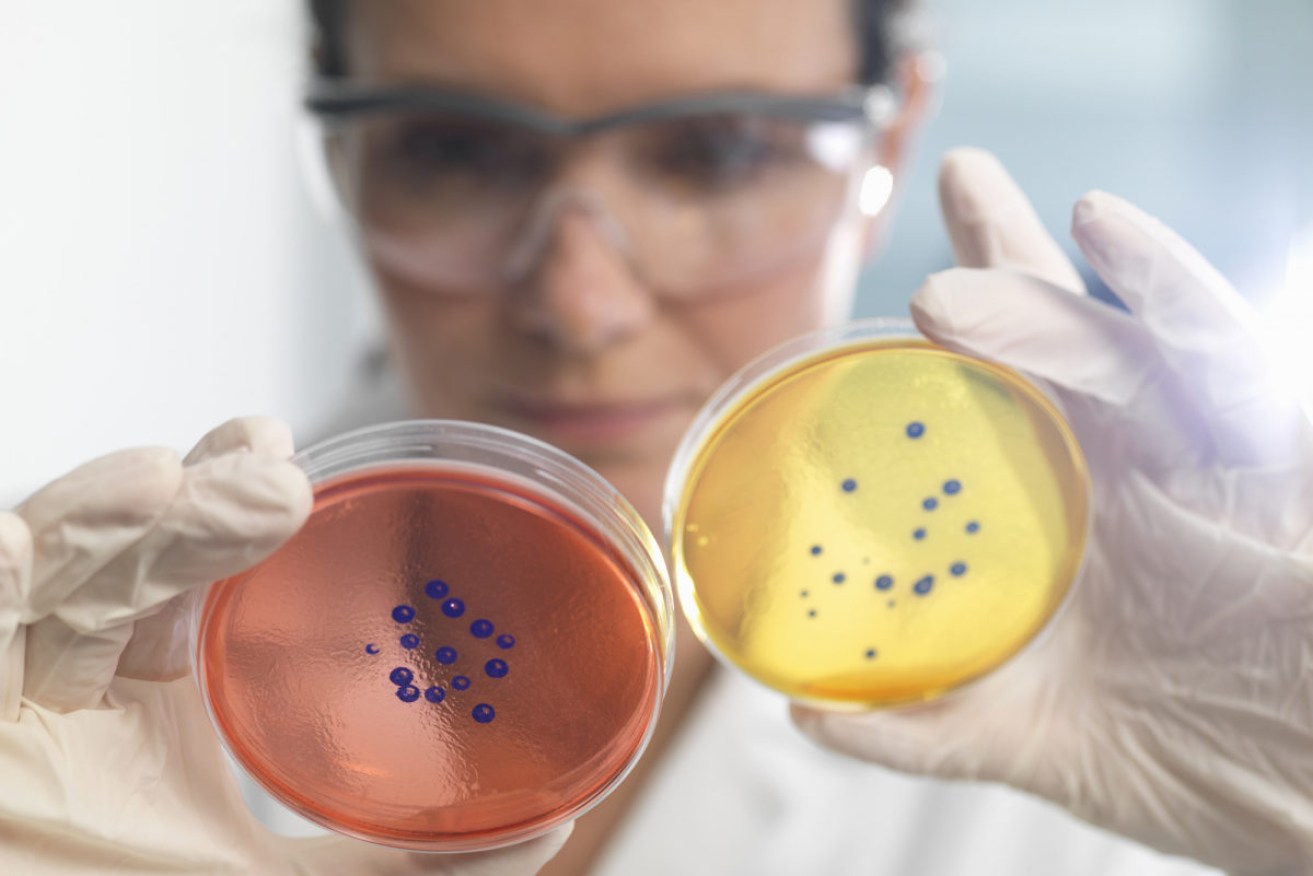Australia’s first case of drug-resistant superbug prompts warning to travellers


Travellers have been urged to get vaccinated following a case of drug-resistant typhoid. Photo: Getty
Fears about the rise of antibiotic-resistant superbugs are growing, with the first case of extensively-drug resistant typhoid reported in Australia.
An Australian-born toddler returning from Pakistan has become the first patient in the nation to develop the superbug, which is resistant to all first-line antibiotics, medical researchers revealed in a letter published by the Medical Journal of Australia on Monday.
The 20-month-old girl presented to the Children’s Hospital at Westmead in Sydney with typhoid symptoms two weeks after returning from a three-month trip to Pakistan, researchers led by Dr Philip Britton, a senior lecturer in child and adolescent health at the University of Sydney, reported.
Since 2016, extensively drug-resistant (XDR) typhoid bacteria have been found in Pakistan, with seven cases of returned travellers – mostly children – infected with the disease reported in England, the United States and Germany.
The toddler began experiencing diarrhoea in Pakistan six weeks before her return, which continued despite the use of prescribed oral antibiotics, Dr Britton and colleagues wrote.
“Ten days of high fevers, irritability, vomiting and reduced oral intake prompted admission,” they wrote.
The girl was treated with two of the last remaining effective antibiotics and discharged from hospital after eight days.
Travellers urged to get vaccinated
The toddler’s case demonstrates that Australia is vulnerable to the threat of drug-resistant superbugs, the researchers wrote, urging travellers visiting affected regions to get vaccinated.
“This case highlights the emerging threat of XDR typhoid and the broader global issue of escalating antimicrobial resistance, to which Australia is not immune, especially given increasing travel
connectivity,” Dr Britton and colleagues wrote.
The period from January to March marks “the peak season” for
travellers returning to Australia, with typhoid a key illness of concern, they said.
Typhoid vaccination is recommended for anyone over the age of two travelling to regions where the bug is endemic, including south and south-east Asia, the researchers said.
“The important role of GPs in providing travel-related vaccine advice and care to returning travellers must not be underestimated,” they said.
“Typhoid must be considered as a diagnosis for febrile returned travellers from endemic regions.”
Superbugs ‘within Australia and at our doorstep’
The news follows warnings from experts concerned about Australia’s vulnerability to antibiotic-resistant superbugs.
Last month, researchers alerted the public to a “black hole in surveillance” that has left Australia vulnerable to drug-resistant superbugs, including typhoid and gonorrhoeae.
There is currently a “large reservoir of antimicrobial resistance” (AMR) both “within Australia and at our doorstep”, Microbiological Diagnostic Unit Public Health Laboratory deputy director Deborah Williamson and colleagues wrote.
The introduction of antibiotics in the mid-20th century provided a “transformative defence” against infectious diseases, leading to “life-saving advances” in medical care, the researchers wrote.
Now, thanks to our misuse and overuse of antibiotics, humanity is facing an “evolutionary struggle against microbes”, they wrote.
“As a result, standard treatments become ineffective, infections persist and may spread to others.”
Despite the “high level of health care” enjoyed by most Australians, the global rise of antimicrobial resistance presents “unique threats” to the nation, Associate Professor Williamson and colleagues warned.
“We face a situation where common bacterial infections may again become untreatable, and the vulnerable in society capitulate to infection,” they wrote.
Food animals consuming large amounts of antibiotics
Researchers have also flagged slashing the massive amount of antibiotics given to animals in Australia as key to fighting the rise of antibiotic resistance in humans.
Food animals are consuming greater quantities of antibiotics than humans, Monash University Professor of Infectious Diseases Epidemiology Allen Cheng and Alfred Health researcher Freya Langham found.
Between 2005 and 2010, “an average of 182 tonnes [of antibiotics] were sold for use each year in animals … and 121 tonnes per year were used in humans”, Professor Cheng and Dr Langham said.
They called for the amount of antibiotics used for food animals to be cut by clamping down on the use of the drugs for purposes other than infections, developing preventive strategies such as vaccination and better design of production facilities.








